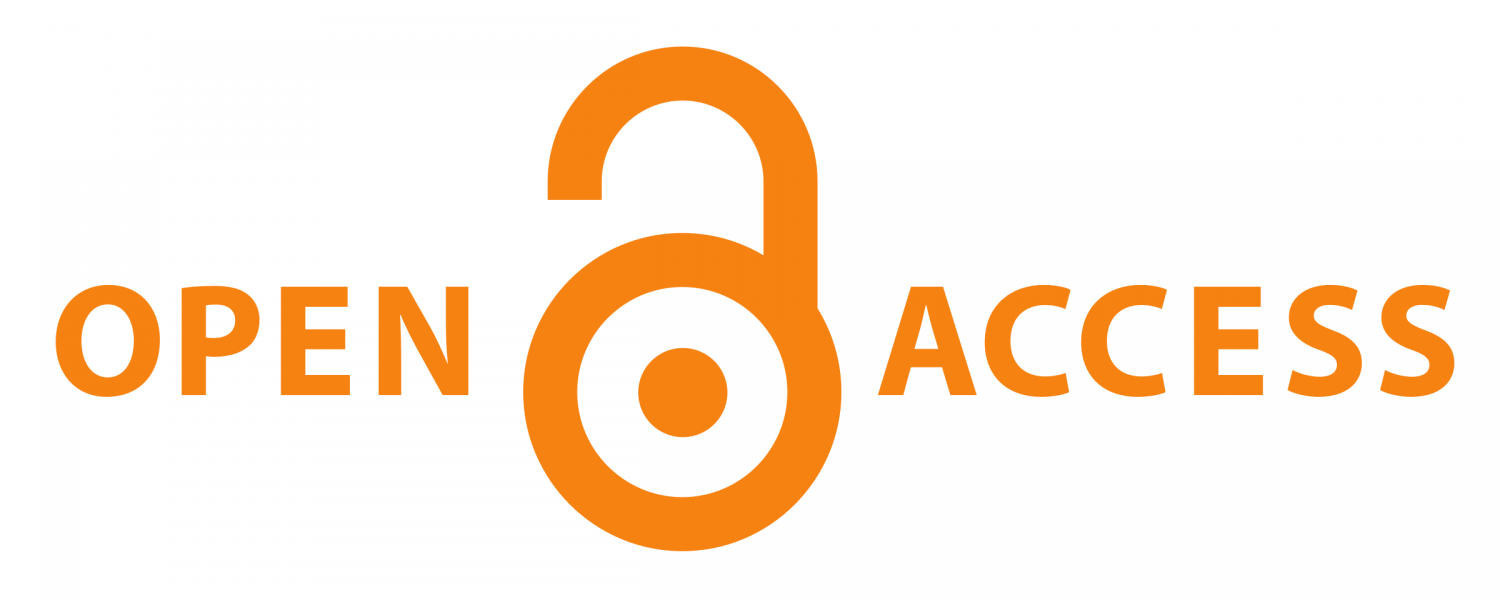The Impact of Artificial Intelligence on Enhancing Guest Experience of Hotel Industry in Kuala Lumpur, Malaysia
DOI:
https://doi.org/10.70715/jitcai.2025.v2.i2.019Keywords:
Artificial Intelligence, Perceived Usefulness, Perceived Ease of Use, Attitude Towards Using Artificial Intelligence, Guest Satisfaction, Hospitality IndustryAbstract
Utilizing the Technology Acceptance Model (TAM) as its theoretical backbone, this research examines AI integration into hotel guest experiences of Kuala Lumpur. The study explores relationships between PU, PEOU, Attitude Toward Using AI, and Guest Satisfaction (GUSA), investigating AUAI as a mediator and examining the moderating role of guest age, previous AI experience and trip purpose. Through the empirical survey of 630 hotel customers and analyzing the data with structure equation model (SEM), this study finds that PUSE and PEUS have significant impacts on AUAI and thus indirectly affect GUSA; meanwhile, PUSE and PEUS are directly influencing customer satisfaction simultaneously so that there are parallel direct and indirect effects. Adding to the TAM-strain in hospitality research, this result places post-adoption satisfaction as a primary outcome. Disparities between demographic and experience segments imply specificity in implementing AI. The findings have broader implications in both theoretical and practical ways: theoretically, it furthers the understanding of AI adoption within services context by incorporating technology acceptance with satisfaction outcomes; practically, it provides hoteliers and developers of AI technologies with practical steps toward creating solutions that are useful, easy to use, and constructs favorable guest attitudes insights valuable for strategically fast growing urban destinations such as Kuala Lumpur.
Downloads
References
[1] Acharya, P., & Mahapatra, S. S. (2024). EXPLORING THE IMPACT OF ARTIFICIAL INTELLIGENCE INTEGRATION ON GUEST EXPERIENCE IN THE HOTEL INDUSTRY. GeoJournal of Tourism and Geosites, 54(2 supplement), 802–810. https://doi.org/10.30892/gtg.542spl04-1255
[2] Ali, M., Khan, T. I., & Şener, İ. (2025). Transforming hospitality: The dynamics of AI integration, customer satisfaction, and organizational readiness in enhancing firm performance. Journal of Hospitality and Tourism Technology. https://doi.org/10.1108/JHTT-04-2024-0261
[3] Alnoor, A., Abbas, S., Sadaa, A. M., Chew, X., & Bayram, G. E. (2025). Navigating the power of blockchain strategy: Analysis of technology-organization-environment (TOE) framework and innovation resistance theory using PLS-SEM and ANN insights. Technological Forecasting and Social Change, 214, 124044. https://doi.org/10.1016/j.techfore.2025.124044
[4] Alsheikh, G. A. A., Al-Ghalabi, R. R., Altarawneh, A., & Al-Shamaileh, L. R. (2024). Prediction model for behavioral intention to use E-HRM through awareness in Jordanian five-star hotels. Heritage and Sustainable Development, 6(1), 219–234. https://doi.org/10.37868/hsd.v6i1.490
[5] Amusa, L. B., & Hossana, T. (2024). An empirical comparison of some missing data treatments in PLS-SEM. PLOS ONE, 19(1), e0297037. https://doi.org/10.1371/journal.pone.0297037
[6] Anwar, F. A., Deliana, D., & Suyamto, S. (2024). Digital Transformation in the Hospitality Industry: Improving Efficiency and Guest Experience. International Journal of Management Science and Information Technology, 4(2), Article 2. https://doi.org/10.35870/ijmsit.v4i2.3201
[7] Becker, J.-M., Cheah, J.-H., Gholamzade, R., Ringle, C. M., & Sarstedt, M. (2022). PLS-SEM’s most wanted guidance. International Journal of Contemporary Hospitality Management, 35(1), 321–346. https://doi.org/10.1108/IJCHM-04-2022-0474
[8] Bharatkumar, S. R. (2024). Digital Transformation In Business—The Impact Of AI In Enhancing Customer Experience. IOSR Journal of Business and Management, 26(10), 53–58. https://doi.org/10.9790/487X-2610145358
[9] Bhuiyan, K. H., Ahmed, S., & Jahan, I. (2024). Consumer attitude toward using artificial intelligence (AI) devices in hospitality services. Journal of Hospitality and Tourism Insights, 7(2), 968–985. https://doi.org/10.1108/jhti-08-2023-0551
[10] Buhalis, D., Lin, M. S., & Leung, D. (2023). Metaverse as a driver for customer experience and value co-creation: Implications for hospitality and tourism management and marketing. International Journal of Contemporary Hospitality Management, 35(2), 701–716. https://doi.org/10.1108/IJCHM-05-2022-0631
[11] Bulchand-Gidumal, J. (2022). Impact of Artificial Intelligence in Travel, Tourism, and Hospitality. In Z. Xiang, M. Fuchs, U. Gretzel, & W. Höpken (Eds.), Handbook of e-Tourism (pp. 1943–1962). Springer International Publishing. https://doi.org/10.1007/978-3-030-48652-5_110
[12] Chen, Y., Li, H., & Xue, T. (2023). Female Gendering of Artificial Intelligence in Travel: A Social Interaction Perspective. Journal of Quality Assurance in Hospitality & Tourism, 1–16. https://doi.org/10.1080/1528008X.2023.2275263
[13] Chius, D. O., Razak, N. N. B. A., Ismail, S. N. B., & Azeman, A. S. (2024). Customer Intention on Service Robots’ Technology in the Hospitality Industry: A Study in Kuala Lumpur. E-Academia Journal, 13(2), Article 2. https://doi.org/10.24191/eaj.v13i2.3377
[14] Chorna, N., Korzh, N., Kiziun, A., Onyshchuk, N., & Antoniuk, K. (2024). THE ROLE OF DIGITAL TECHNOLOGIES IN THE TRANSFORMATION OF THE TOURISM BUSINESS: PROSPECTS FOR DEVELOPMENT AND IMPACT ON THE COUNTRY’S ECONOMY. AD ALTA: Journal of Interdisciplinary Research, 14(1), 136–140. https://doi.org/10.33543/140139136140
[15] Chotisarn, N., & Phuthong, T. (2025). Impact of artificial intelligence-enabled service attributes on customer satisfaction and loyalty in chain hotels: Evidence from coastal tourism destinations in western Thailand. Social Sciences & Humanities Open, 11, 101306. https://doi.org/10.1016/j.ssaho.2025.101306
[16] Davis, F. D. (1989). Perceived Usefulness, Perceived Ease of Use, and User Acceptance of Information Technology. MIS Quarterly, 13(3), 319. https://doi.org/10.2307/249008
[17] Du, H., Li, J., So, K. K. F., & King, C. (2024). Artificial intelligence in hospitality services: Examining consumers’ receptivity to unmanned smart hotels. Journal of Hospitality and Tourism Insights, 8(11), 55–78. https://doi.org/10.1108/jhti-06-2024-0548
[18] Dutta, S. (2024). Chatbot Effectiveness in Enhancing Guest Communication: Insights from Secondary Data. Tuijin Jishu/Journal of Propulsion Technology, 45(04), 2137–2150. https://doi.org/10.52783/tjjpt.v45.i04.8497
[19] Elshaer, A. M., & Marzouk, A. M. (2024). Memorable tourist experiences: The role of smart tourism technologies and hotel innovations. Tourism Recreation Research, 49(3), 445–457. https://doi.org/10.1080/02508281.2022.2027203
[20] Fernandes, M. D., Wani, P. S., & Shah, G. D. (2024). The Integration of Artificial Intelligence in the Hospitality Industry. In Hotel and Travel Management in the AI Era (pp. 525–550). IGI Global.
[21] Gajić, T., Vukolić, D., & Knežević, S. (2024). UREĐENJE EFIKASNOSTI I PERSONALIZACIJE USLUGA PUTEM PRIMENE VEŠTAČKE INTELIGENCIJE U HOTELSKOJ INDUSTRIJI. Ekonomist, 3(2), 9–31. https://doi.org/10.46793/ekonomist3.2.1g
[22] Gavade, P. (2024). Enhancing Customer Relationship Management with Artificial Intelligence. International Journal of Computer Science and Engineering, 11(3), 9–13. https://doi.org/10.14445/23488387/IJCSE-V11I3P102
[23] Ghazi, K., Kattara, H., Salem, I. E., & Shaaban, M. N. (2025). Benefit-triggered or trust-guided? Investigation of customers’ perceptions towards AI-adopting hotels amid and post COVID-19 pandemic. Tourism and Hospitality Research, 25(1), 38–56. https://doi.org/10.1177/14673584231184161
[24] Ghosh, M., & Thirugnanam, A. (2021). Introduction to Artificial Intelligence. In K. G. Srinivasa, S. G. M., & S. R. M. Sekhar (Eds.), Artificial Intelligence for Information Management: A Healthcare Perspective (pp. 23–44). Springer. https://doi.org/10.1007/978-981-16-0415-7_2
[25] Gudergan, S. P., Moisescu, O. I., Radomir, L., Ringle, C. M., & Sarstedt, M. (2025). Special issue editorial: Advanced partial least squares structural equation modeling (PLS-SEM) applications in business research. Journal of Business Research, 188, 115087. https://doi.org/10.1016/j.jbusres.2024.115087
[26] Hair, J., & Alamer, A. (2022). Partial Least Squares Structural Equation Modeling (PLS-SEM) in second language and education research: Guidelines using an applied example. Research Methods in Applied Linguistics, 1(3), 100027. https://doi.org/10.1016/j.rmal.2022.100027
[27] Hair, J. F., Black, W. C., Babin, B. J., & Anderson, R. E. (2010). Multivariate data analysis. In Multivariate data analysis (pp. 785–785).
[28] Hair, J. F., Hult, G. T. M., Ringle, C. M., Sarstedt, M., Danks, N. P., & Ray, S. (2021). Partial Least Squares Structural Equation Modeling (PLS-SEM) Using R: A Workbook. Springer International Publishing. https://doi.org/10.1007/978-3-030-80519-7
[29] Hair, J. F., Sarstedt, M., Ringle, C. M., Sharma, P. N., & Liengaard, B. D. (2024). Going beyond the untold facts in PLS–SEM and moving forward. European Journal of Marketing, 58(13), 81–106. https://doi.org/10.1108/EJM-08-2023-0645
[30] Ho, Y.-H., Alam, S. S., Masukujjaman, M., Lin, C.-Y., Susmit, S., & Susmit, S. (2022). Intention to Adopt AI-Powered Online Service Among Tourism and Hospitality Companies. International Journal of Technology and Human Interaction, 18(1), 1–19. https://doi.org/10.4018/ijthi.299357
[31] Hu, L., & Bentler, P. M. (1999). Cutoff criteria for fit indexes in covariance structure analysis: Conventional criteria versus new alternatives. Structural Equation Modeling: A Multidisciplinary Journal, 6(1), 1–55. https://doi.org/10.1080/10705519909540118
[32] Ittamalla, R., & Mohammed, S. (2021). Artificial Intelligence And Its Applications In Service Industry – A Review. International Journal of Technology, Management and Knowledge Processing, 1(1). https://doi.org/10.57029/ijtmkpv1i14
[33] Ivanov, S., & Umbrello, S. (2021). The Ethics of Artificial Intelligence and Robotization in Tourism and Hospitality—A Conceptual Framework and Research Agenda. Journal of Smart Tourism, 1(4), 9–18. https://doi.org/10.52255/smarttourism.2021.1.4.3
[34] Jasrotia, A., Banerjee, S., & Shukla, R. (2024). AI-Powered Customer Engagement: Changing Marketing Strategies in the Hotel Industry. In V. Nadda, P. K. Tyagi, A. Singh, & V. Singh (Eds.), Advances in Marketing, Customer Relationship Management, and E-Services (pp. 105–114). IGI Global. https://doi.org/10.4018/979-8-3693-7122-0.ch006
[35] Jewandah, S., Bhushan, P., Ozen, E., Ghai, S., Jewandah, S., Bhushan, P., Ozen, E., & Ghai, S. (2024). From Tradition to Innovation: The Role of Artificial Intelligence in Transforming the Hospitality Industry (from-tradition-to-innovation) [Chapter]. Https://Services.Igi-Global.Com/Resolvedoi/Resolve.Aspx?Doi=10.4018/979-8-3693-1388-6.Ch017; IGI Global Scientific Publishing. https://doi.org/10.4018/979-8-3693-1388-6.ch017
[36] Jung, M., Jeong, Y., & Park, B. J. (2023). Adaptation of families of adult patients with brain tumor: Partial least squares structural equation modeling. PLOS ONE, 18(5), e0285677. https://doi.org/10.1371/journal.pone.0285677
[37] Kamranfar, S., Damirchi, F., Pourvaziri, M., Abdunabi Xalikovich, P., Mahmoudkelayeh, S., Moezzi, R., & Vadiee, A. (2023). A Partial Least Squares Structural Equation Modelling Analysis of the Primary Barriers to Sustainable Construction in Iran. Sustainability, 15(18), 13762. https://doi.org/10.3390/su151813762
[38] Kaur, M., Pandey, U., & Kaur, A. (2024). Leveraging AI for 24/7 Support: A Guide to Implementing Intelligent Chatbots in the Hotel Industry. In M. B. Talukder, S. Kumar, & P. K. Tyagi (Eds.), Advances in Hospitality, Tourism, and the Services Industry (pp. 302–328). IGI Global. https://doi.org/10.4018/979-8-3693-6755-1.ch016
[39] Kennedy, H., & Wanless, L. (2022). Artificial Intelligence. In The Routledge Handbook of Digital Sport Management (1st ed., pp. 333–345). Routledge. https://doi.org/10.4324/9781003088899-29
[40] Khmeleva, G. A., Kurnikova, M. V., Nedelka, E., & Tóth, B. I. (2022). Determinants of Sustainable Cross-Border Cooperation: A Structural Model for the Hungarian Context Using the PLS-SEM Methodology. Sustainability, 14(2), 893. https://doi.org/10.3390/su14020893
[41] Khoalenyane, N. B., & Ajani, O. A. (2024). Life After COVID-19: Artificial Intelligence in Hotels; In-depth Literature Review. International Journal of Management, Knowledge and Learning, 13. https://doi.org/10.53615/2232-5697.13.93-104
[42] Kineber, A. F., Oke, A. E., Hamed, M. M., Rached, E. F., Elmansoury, A., & Alyanbaawi, A. (2023). A Partial Least Squares Structural Equation Modeling of Robotics Implementation for Sustainable Building Projects: A Case in Nigeria. Sustainability, 15(1), 604. https://doi.org/10.3390/su15010604
[43] Kishore, D., Raju, S. S., & Rana, V. (2025). Exploring the Impact of Emerging Technologies on the Hospitality Industry: In B. Ahmad, M. Abrar, & M. Saeed (Eds.), Advances in Hospitality, Tourism, and the Services Industry (pp. 337–364). IGI Global. https://doi.org/10.4018/979-8-3693-7127-5.ch013
[44] Kumar, A. V. S., Mosikan, M., Dutta, A., L., M. R., Musirin, I. B., Akula, V. S. G., Khalid, S., Yalavarthi, S. B., D. V., C. S., R. V., S., Dulhare, U. N., S. K., T., Kumar, A. V. S., Mosikan, M., Dutta, A., L., M. R., Musirin, I. B., Akula, V. S. G., Khalid, S., … S. K., T. (2024, October 4). AI-Driven Personalization in Tourism: Balancing Innovation with Ethical Challenges (ai-driven-personalization-in-tourism) [Chapter]. Https://Services.Igi-Global.Com/Resolvedoi/Resolve.Aspx?Doi=10.4018/979-8-3693-5678-4.Ch002; IGI Global Scientific Publishing. https://doi.org/10.4018/979-8-3693-5678-4.ch002
[45] Lee, H., Ma, H., & Xiao, G. (2023). Ready for Robot Assistance? Exploring Gender Influences on Service Robot Adoption in Luxury vs. Economy Hotels. Journal of Marketing Development and Competitiveness, 17(4). https://doi.org/10.33423/jmdc.v17i4.6663
[46] Malhotra, Y., & Galletta, D. F. (1999). Extending the technology acceptance model to account for social influence: Theoretical bases and empirical validation. Proceedings of the 32nd Annual Hawaii International Conference on Systems Sciences. 1999. HICSS-32. Abstracts and CD-ROM of Full Papers, 14. https://doi.org/10.1109/hicss.1999.772658
[47] Modi, R. K., & Kumar, J. (2025). Impact of AI on the Travel, Tourism, and Hospitality Sectors: In V. Jain, M. Raman, A. Agrawal, M. Hans, & S. Gupta (Eds.), Practice, Progress, and Proficiency in Sustainability (pp. 223–244). IGI Global. https://doi.org/10.4018/979-8-3693-3410-2.ch010
[48] Mukid, M. A., Otok, B. W., & Suharsono, A. (2022). Segmentation in Structural Equation Modeling Using a Combination of Partial Least Squares and Modified Fuzzy Clustering. Symmetry, 14(11), 2431. https://doi.org/10.3390/sym14112431
[49] Mungoli, N. (2023). Revolutionizing Industries: The Impact of Artificial Intelligence Technologies. Journal of Electrical Electronics Engineering, 2(3). https://doi.org/10.33140/JEEE.02.03.03
[50] Naqvi, G., Saddique, M. H., Sarim, M., & Riyan, S. U. (2023). Application of AI in Hotel Management and its Benefits. STATISTICS, COMPUTING AND INTERDISCIPLINARY RESEARCH, 5(1), 1–13. https://doi.org/10.52700/scir.v3i2.141
[51] Patil, D. (2025). Artificial Intelligence-Driven Customer Service: Enhancing Personalization, Loyalty, And Customer Satisfaction. SSRN. https://doi.org/10.2139/ssrn.5057432
[52] Rad, D., Egerau, A., Roman, A., Dughi, T., Balas, E., Maier, R., Ignat, S., & Rad, G. (2022). A Preliminary Investigation of the Technology Acceptance Model (TAM) in Early Childhood Education and Care. BRAIN. Broad Research in Artificial Intelligence and Neuroscience, 13(1), 518–533. https://doi.org/10.18662/brain/13.1/297
[53] Rajendran, H. R., Kassim, A. A. M., & Ahmad, A. (2023). The Effect of Risk Management on the Financial Performances Among Hospitality and Tourism Companies in Malaysia. International Journal of Professional Business Review, 8(9), e03490. https://doi.org/10.26668/businessreview/2023.v8i9.3490
[54] Rane, N., Paramesha, M., Choudhary, S., & Rane, J. (2024). Artificial Intelligence in Sales and Marketing: Enhancing Customer Satisfaction, Experience and Loyalty. SSRN Electronic Journal. https://doi.org/10.2139/ssrn.4831903
[55] Rasheed, H. M. W., Yuanqiong, H., Khizar, H. M. U., & Khalid, J. (2024). What drives the adoption of artificial intelligence among consumers in the hospitality sector: A systematic literature review and future agenda. Journal of Hospitality and Tourism Technology, 15(2), 211–231. https://doi.org/10.1108/jhtt-02-2022-0045
[56] Reddy, D. (2024). How do customers react to the integration of AI in customer experience. International Journal For Multidisciplinary Research, 6(5), 28954. https://doi.org/10.36948/ijfmr.2024.v06i05.28954
[57] Sasongko, A. T., Ekhsan, M., & Fatchan, M. (2025). Dataset on technology acceptance in E-learning: A PLS-SEM analysis using extended TAM among undergraduate students in Indonesia. Telematics and Informatics Reports, 18, 100192. https://doi.org/10.1016/j.teler.2025.100192
[58] Saxena, S. K., Gupta, V., & Kumar. (2024). Enhancing Guest Loyalty in the Hotel Industry Through Artificial Intelligence-Drive Personalization. In Advances in Hospitality, Tourism, and the Services Industry (pp. 337–352). IGI Global. https://doi.org/10.4018/979-8-3693-2272-7.ch017
[59] Schuberth, F., Rademaker, M. E., & Henseler, J. (2022). Assessing the overall fit of composite models estimated by partial least squares path modeling. European Journal of Marketing, 57(6), 1678–1702. https://doi.org/10.1108/EJM-08-2020-0586
[60] Shanmugam, K., Rana, M. E., & Kong, Z. Y. (2024). A Comprehensive Analysis of Technological Advancements and Smart Tourism Strategies in Malaysia’s Post-Pandemic Tourism Industry. 2024 ASU International Conference in Emerging Technologies for Sustainability and Intelligent Systems (ICETSIS), 909–916. https://doi.org/10.1109/icetsis61505.2024.10459443
[61] Sharma, S., Bhatt, D., Kumar, N., & Karadağ, L. (2025). Exploring the Impact of Artificial Intelligence on the Tourism and Hospitality Industry: A Comprehensive Analysis. In Advances in Wireless Technologies and Telecommunication (pp. 233–258). IGI Global. https://doi.org/10.4018/979-8-3693-6725-4.ch010
[62] Sharma, V. (2024). AI in Hospitality and Tourism Promotion: Opportunities and Challenges. In M. B. Talukder, S. Kumar, & P. K. Tyagi (Eds.), Advances in Hospitality, Tourism, and the Services Industry (pp. 43–65). IGI Global. https://doi.org/10.4018/979-8-3693-6755-1.ch003
[63] Singh, G., Raheja, S., & Sharma, R. (2023). Elevating Hospitality with Smart Hotel Technologies: A Guest – Centric Perspective. 2023 IEEE Engineering Informatics, 1–9. https://doi.org/10.1109/IEEECONF58110.2023.10520539
[64] Singh, P., & Singh, V. (2024). The power of AI: Enhancing customer loyalty through satisfaction and efficiency. Cogent Business & Management, 11(1), 2326107. https://doi.org/10.1080/23311975.2024.2326107
[65] Srivastava, P., & Rodiris, L. J. (2024). Chatbots in Hospitality: Decoding Tourist Behaviour Among Indian and Filipino Travelers. In N. Azman, M. Valeri, A. Albattat, & A. Singh (Eds.), Advances in Hospitality, Tourism, and the Services Industry (pp. 207–238). IGI Global. https://doi.org/10.4018/979-8-3693-3972-5.ch009
[66] Sternad Zabukovšek, S., Bobek, S., Zabukovšek, U., Kalinić, Z., & Tominc, P. (2022). Enhancing PLS-SEM-Enabled Research with ANN and IPMA: Research Study of Enterprise Resource Planning (ERP) Systems’ Acceptance Based on the Technology Acceptance Model (TAM). Mathematics, 10(9), 1379. https://doi.org/10.3390/math10091379
[67] Suhag, N., Sarkar, D., & Singh, A. (2024). Exploring the Impact of AI-Driven Chatbots on Customer Service in the Hospitality Industry: In V. Nadda, P. K. Tyagi, A. Singh, & V. Singh (Eds.), Advances in Marketing, Customer Relationship Management, and E-Services (pp. 211–224). IGI Global. https://doi.org/10.4018/979-8-3693-7122-0.ch012
[68] Talukder, M. B. (2024). Implementing Artificial Intelligence and Virtual Experiences in Hospitality (implementing-artificial-intelligence-and-virtual-experiences-in-hospitality) [Chapter]. Https://Services.Igi-Global.Com/Resolvedoi/Resolve.Aspx?Doi=10.4018/979-8-3693-2019-8.Ch009; IGI Global Scientific Publishing. https://doi.org/10.4018/979-8-3693-2019-8.ch009
[69] Talukder, M. B., & Das, I. R. (2024). The technology impacts and AI solutions in hospitality. I-Manager’s Journal on Artificial Intelligence & Machine Learning, 2(1), 56. https://doi.org/10.26634/jaim.2.1.20291
[70] Talukder, M. B., Rahman, Md. Z., & Khan, M. R. (2024). Enhancing Guest Experience Through Smart Hotel Technologies. In Advances in Hospitality, Tourism, and the Services Industry (pp. 301–324). IGI Global. https://doi.org/10.4018/979-8-3693-7021-6.ch011
[71] Terrah, A., Ali, F., Abbasi, G. A., Doğan, S., & Cobanoglu, C. (2024). Determinants of Users’ Intentions to Use AI-Enabled Technological Innovations in Hotels: A Hybrid Approach Using PLS-SEM and fsQCA. Advances in Hospitality and Tourism Research (AHTR), 12(2), 200–228. https://doi.org/10.30519/ahtr.1392494
[72] Torabi, Z.-A., Shalbafian, A., Allam, Z., Ghaderi, Z., Murgante, B., & Khavarian-Garmsir, A. (2022). Enhancing Memorable Experiences, Tourist Satisfaction, and Revisit Intention through Smart Tourism Technologies. Sustainability, 14(5), 2721. https://doi.org/10.3390/su14052721
[73] Traversa, F. (2024). Artificial Intelligence in Tourism. In Reference Module in Social Sciences. Elsevier. https://doi.org/10.1016/b978-0-443-13701-3.00344-3
[74] Vashishth, T. K., Sharma, V., Sharma, M. K., & Sharma, R. (2025). Enhancing Hotel Customer Service With AI-Powered Chatbots: In B. Ahmad, M. Abrar, & M. Saeed (Eds.), Advances in Hospitality, Tourism, and the Services Industry (pp. 83–114). IGI Global. https://doi.org/10.4018/979-8-3693-7127-5.ch004
[75] Venkateswaran, P. S., Sriramkumar, M., Vaddy, R. K., Kotagiri, A., Rajest, S. S., & Regin, R. (2024). Applications of Artificial Intelligence and Robots in Service Industries: In S. S. Rajest, S. Moccia, B. Singh, R. Regin, & J. Jeganathan (Eds.), Advances in Computer and Electrical Engineering (pp. 61–80). IGI Global. https://doi.org/10.4018/979-8-3693-3739-4.ch004
[76] Venkatraman, D. D. P., & Kurtkoti, P. M. (2024). Artificial Intelligence in the Service Industry: Transforming Operations and Enhancing Customer Experience. Nanotechnology Perceptions, 198–201. https://doi.org/10.62441/nano-ntp.vi.3674
[77] Yew, W. C., Kong, S. M., Awang, A. H., & Yi, G. R. (2022). Developing a Conceptual Model for the Causal Effects of Outdoor Play in Preschools Using PLS-SEM. Sustainability, 14(6), Article 6. https://doi.org/10.3390/su14063365
[78] Zhang, Y., Sotiriadis, M., & Shen, S. (2022). Investigating the Impact of Smart Tourism Technologies on Tourists’ Experiences. Sustainability, 14(5), 3048. https://doi.org/10.3390/su14053048
Downloads
Published
Issue
Section
License
Copyright (c) 2025 Shah Bin Taufiqur Rahman, Dr. Darian Low Eng Swee (Author)

This work is licensed under a Creative Commons Attribution 4.0 International License.














